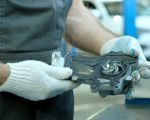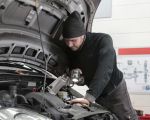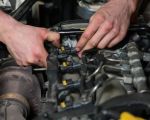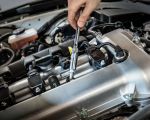- understanding-why-your-car-vibrates-while-driving
- common-causes-of-car-vibrations
- diagnosing-vibrations-based-on-speed-and-location
- when-to-see-a-professional-for-car-vibrations
- real-life-examples-and-preventive-tips
- how-rescue-towing-can-assist-with-vehicle-issues
1. Understanding Why Your Car Vibrates While Driving
Many drivers experience vibrations while driving and wonder, “What does it mean when my car vibrates while driving?” This sensation can be unsettling and sometimes signals underlying mechanical issues. A vibration can range from a mild shake to severe trembling, and understanding the root cause is essential to maintaining vehicle safety and comfort.
Vibrations typically indicate that some component of your vehicle is out of balance, misaligned, or damaged. These issues can affect various parts such as tires, suspension, brakes, or the engine. The key is to identify whether the vibration happens only at certain speeds, when braking, or constantly, as this can guide you to the likely cause.

Junior Auto Body Solutions LLC
10409c Merrick Blvd, Jamaica, NY 11433, USA
1.1 Why Addressing Vibrations Matters
Ignoring car vibrations can lead to worsening mechanical failures, reduced fuel efficiency, and even safety risks. Driving a vibrating vehicle for extended periods may cause premature tire wear or damage to suspension components.

Premier auto solutions ny
532 Ray St, Freeport, NY 11520, USA
2. Common Causes of Car Vibrations
When exploring what it means when your car vibrates while driving, the causes vary widely but often fall into several categories.
2.1 Tire Issues
Uneven tire wear, imbalanced tires, or misaligned wheels are the most frequent reasons for vibrations. For example, if the steering wheel shakes at highway speeds, it often points to wheel balance problems.
2.2 Brake System Problems
If vibration occurs mainly when braking, warped brake rotors or worn brake pads are likely culprits. This not only causes discomfort but can impair braking performance.
2.3 Suspension and Steering Components
Worn or damaged suspension parts such as tie rods, ball joints, or shock absorbers can cause vibrations felt in the steering wheel or throughout the vehicle.
2.4 Engine and Transmission Issues
Sometimes, engine misfires, worn motor mounts, or transmission problems generate vibrations, especially at idle or specific speeds.
3. Diagnosing Vibrations Based on Speed and Location
Pinpointing when and where vibrations occur helps narrow down the cause significantly.
3.1 Vibration at Low Speeds
Vibrations felt primarily when starting or at low speeds may indicate engine or transmission issues, or problems with the drive shaft.
3.2 Vibration at High Speeds
Commonly related to tire balance or alignment problems. A customer of mine once reported steering wheel shakes above 60 mph; balancing the tires resolved the issue immediately.
3.3 Vibration When Braking
This usually signals brake rotor warping or uneven brake pad wear, a serious safety concern needing prompt repair.
3.4 Vibration Through the Steering Wheel
Often caused by issues with front tires or steering system components, requiring a detailed inspection of suspension parts.
4. When to See a Professional for Car Vibrations
While some vibrations can be minor, many indicate problems that require expert diagnostics and repair.
4.1 Warning Signs You Shouldn’t Ignore
Persistent or worsening vibrations, noises accompanying the shaking, or vibrations that affect control and safety demand immediate professional attention.
4.2 How Professionals Diagnose Vibrations
Technicians use specialized equipment to check wheel balance, alignment, suspension integrity, and engine performance to pinpoint the cause accurately.
4.3 Benefits of Early Intervention
Fixing vibration issues early can prevent costly repairs, extend tire life, and improve overall vehicle safety and comfort.
5. Real-Life Examples and Preventive Tips
Consider the story of a driver who ignored mild vibrations for months, only to discover a severely damaged CV joint during a breakdown. This case emphasizes why understanding what it means when your car vibrates while driving is crucial.
5.1 Regular Maintenance and Inspections
Routine tire balancing, alignment checks, and suspension inspections reduce the risk of vibration-related issues.
5.2 Driving Habits Impacting Vibrations
Aggressive driving, hitting potholes, or neglecting to replace worn parts can exacerbate vibrations. Gentle driving and timely repairs help maintain smooth operation.
6. How Rescue & Towing Can Assist with Vehicle Issues
For drivers who encounter sudden or persistent vibrations leading to breakdowns, reliable help is crucial. Rescue & Towing offers expert roadside assistance, tire repair, and towing services to get you back on track quickly and safely.
Their team understands the urgency behind vibration-related vehicle problems and provides tailored support that can prevent further damage and keep you safe on the road.






























